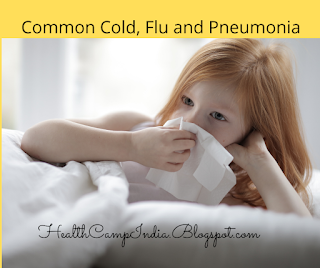The common cold is a viral infection that affects the upper respiratory system. It is highly contagious and is transmitted through droplets in the air when an infected person coughs or sneezes.
The symptoms of a cold can be mild or severe, and can make it difficult for people to carry out their daily activities.
Symptoms of the common cold
The symptoms of a cold can vary depending on the severity of the infection. Common symptoms include:
Blocked or runny nose: This is one of the most common symptoms of a cold. It can make it difficult for people to breathe and can cause discomfort.
Sore throat: A sore throat can make it painful to swallow and can cause discomfort in the throat.
Headaches: Many people experience headaches during a cold. This can be due to the inflammation of the sinuses.
Muscle aches: Muscle aches are common during a cold and can make it difficult for people to move around.
Cough: A cough is a common symptom of a cold. It can be dry or wet and can be persistent.
Sneezing: Sneezing is another common symptom of a cold. It can be frequent and can be a way for the body to expel the virus.
Raised temperature: A raised temperature is common during a cold. It is the body's way of fighting the infection.
Pressure in the ears and face: This can be due to the inflammation of the sinuses.
Loss of taste and smell: This can be a temporary symptom of a cold.
Do you know the difference between a cold and flu ??!!
The symptoms of a cold can be similar to those of the flu, and it can be difficult to tell the difference between the two.
However, the flu is usually more severe than a cold and can cause more serious complications.
The symptoms of the flu include:
High temperature: This is a common symptom of the flu and is usually higher than that of a cold.
Body aches: Body aches are common during the flu and can be severe.
Fatigue: Fatigue is common during the flu and can make it difficult for people to carry out their daily activities.
Dry cough: A dry cough is common during the flu and can be persistent.
Headaches: Headaches are common during the flu and can be severe.
Sore throat: A sore throat can be a symptom of the flu, but is usually less severe than that of a cold.
Treatment for cold
The common cold is a self-limiting illness, and most people will recover within 1-2 weeks without any treatment.
However, there are some things that people can do to alleviate the symptoms of a cold and to speed up recovery.
Rest and sleep: Rest and sleep are important for the body to fight off the infection.
Drink plenty of water: Drinking plenty of water can help to prevent dehydration, which can make the symptoms of a cold worse.
Gargle salt water: Gargling salt water can help to soothe a sore throat. However, this is not suitable for children. Also this is one of Ayurvedic remedy
Stay at home: If you have a high temperature or do not feel well enough to carry out your normal activities, try to stay at home and avoid contact with other people until you feel better.
What are the medicines for cold ??!!
There are a range of over-the-counter medications that can be used to alleviate the symptoms of a cold.
These include:
Painkillers: Painkillers such as paracetamol and ibuprofen can be used to ease aches and lower a temperature.
Decongestants: Decongestants can be used to relieve a blocked nose
However, they should not be given to children under 6 years old. Children aged 6 to 12 should take them for no longer than 5 days.
Cough and cold medicines: Cough and cold medicines can be used to relieve coughs and other cold symptoms.
However, it is important to be careful when taking these medicines, as they may contain paracetamol and ibuprofen.
It is important not to exceed the recommended dose of these medicines and to avoid taking them if you are already taking paracetamol or ibuprofen tablets.
It is also important to note that some cough and cold medicines may not be suitable for children, babies, and pregnant women. It is important to consult a pharmacist before taking these medicines.
How to prevent from cold
Preventing a cold can be difficult, as it is highly contagious and can be transmitted through the air. However, there are some things that people can do to reduce the risk of catching a cold:
Wash your hands regularly: Washing your hands regularly can help to prevent the spread of the virus.
Avoid touching your face: The virus can be transmitted through the eyes, nose, and mouth. Avoid touching your face, especially if you have been in contact with someone who has a cold.
Avoid close contact with people who have a cold: Try to avoid close contact with people who have a cold, especially if they are coughing or sneezing.
Use a tissue when you cough or sneeze: Using a tissue when you cough or sneeze can help to prevent the spread of the virus.
Keep your environment clean: Cleaning surfaces regularly with a disinfectant can help to kill the virus.
Please remember, the common cold is a viral infection that affects the upper respiratory system. The symptoms of a cold can be mild or severe and can make it difficult for people to carry out their daily activities.
However, most people will recover within 1-2 weeks without any treatment.
There are some things that people can do to alleviate the symptoms of a cold and to speed up recovery.
It is also important to take steps to prevent the spread of the virus, especially during the cold and flu season.
Do let me know your experience of treating Cold by yourself !!




